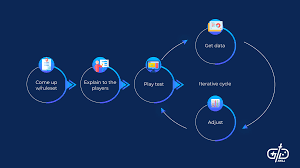
In the constantly evolving world of video games, innovations in technology continue to push the boundaries of what is possible in gaming experiences. One such innovation that has been gaining increasing attention in recent years is controller haptics. These haptic feedback systems have the potential to revolutionize the way we interact with games, offering a more immersive and engaging experience than ever before.
Haptics technology refers to the use of vibrations, force feedback, and other tactile sensations to simulate the sense of touch in video game controllers. This allows players to feel the impact of in-game actions, such as shooting a gun, driving a car, or swinging a sword, in a more realistic and intuitive way. While haptic feedback has been around for some time, recent advancements in controller technology have made it more precise and responsive than ever before.
One of the most notable examples of haptics technology in gaming is the DualSense controller for the PlayStation 5. This controller features advanced haptic feedback and adaptive triggers that can simulate a wide range of sensations, from the tension of pulling back a bowstring to the feeling of driving over rough terrain. These nuanced tactile feedback cues can greatly enhance the immersion and realism of games, making players feel more connected to the virtual world they are best minecraft hosting exploring.

But haptics technology is not just about immersion – it can also have practical gameplay benefits. For example, haptic feedback can provide important information to players, such as indicating when a weapon is low on ammo or when a character is taking damage. This tactile feedback can help players make split-second decisions in fast-paced games, improving their overall performance and enjoyment.
Furthermore, haptics technology can also be used to enhance accessibility in gaming. By providing tactile feedback cues, haptic controllers can make games more inclusive and enjoyable for players with visual or auditory impairments. This technology has the potential to level the playing field and make gaming a more inclusive and diverse space for everyone.
In conclusion, controller haptics are more important than ever in the world of gaming. These innovative technologies have the potential to revolutionize the way we interact with games, offering a more immersive, engaging, and accessible experience for players of all backgrounds. As haptics technology continues to evolve and improve, we can expect to see even more exciting advancements in gaming experiences in the years to come.
